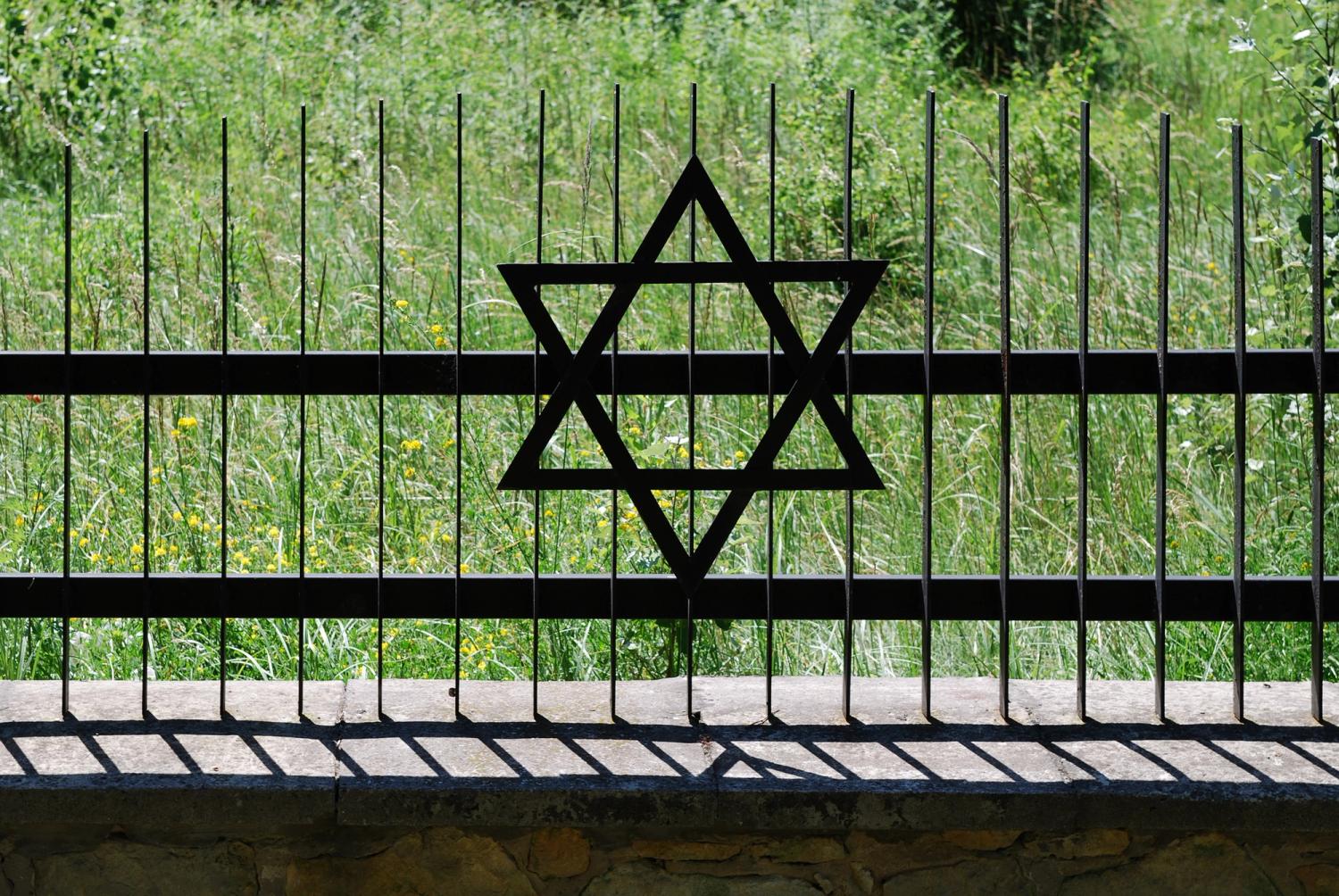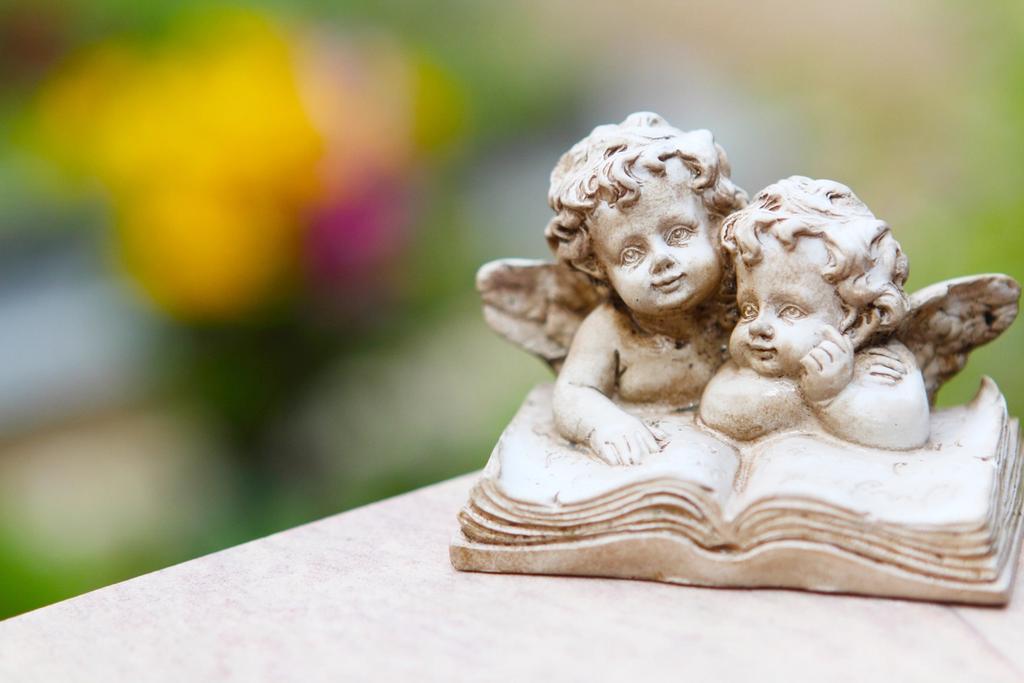Jewish Funeral Traditions
Jews commonly believe holiness can be attained through following the laws and commandments laid out in the Torah (the Old Testament).

Though there is no explicit afterlife in Judaism, many Jews believe that after death the soul of the deceased is judged and those who led perfect lives are let into the World to Come, while those who did not must wait for one year to enter the World to Come. Some Jews also believe that when the Messiah comes every person will be resurrected.
After Death Has Occurred
When a Jew dies, those who will mourn the death should recite the prayer “Dayan HaEmet,” recognizing God’s power as the “true judge.” A rabbi or funeral home should be contacted immediately. According to Jewish law, the body must be interred as soon as practical from the time of death, which means that funeral planning begins immediately. From the moment of death until the moment of burial, a Jewish body should not be left unattended, and the rabbi or funeral home can help coordinate a “shomer” (guardian) for the purposes of staying with the body. In addition, the funeral home will begin to make arrangements for the funeral service and burial, coordinate with the family’s rabbi or assist the family in identifying an appropriate rabbi, and put the family in touch with the local “chevra kadisha” (burial society) if one exists.
The shomer may be a family member, a friend, or a member of the congregation or chevra kadisha. As the shomer may be required to stay with the body for an extended period of time, it is not uncommon to have more than one shomer or people taking turns acting as the shomer. While the shomer may simply sit with the body, it is traditional for the shomer to recite “tehillim” (psalms).
When To Hold A Jewish Funeral
Jewish law requires that the body be buried within a day or as soon as practical from the time of death. However, exceptions may be made in a number of cases, including if there are any legal issues surrounding the death that must be investigated, if the body must be transported from one city or country to another, if close family members must travel far distances to be present for the funeral, or to avoid burial on Saturday or another holy day.
Organ Donation/Donation To Medical Research
Organ donation is generally acceptable in Judaism, and is often viewed as a “mitzvah” (good deed). Likewise, it is generally acceptable to donate the body to medical research. If there is any question as to whether or not organs may be donated, it is best to consult with a rabbi.
Autopsies
Routine autopsies are not acceptable in Judaism as they are seen as a desecration of the body. In most cases, the family of the deceased may refuse to have a routine autopsy performed. Should an autopsy be necessary for legal reasons, a rabbi familiar with the procedures may be present while the autopsy is performed if possible.
Embalming
Embalming and cosmetology are not generally used by Jews unless required by law.
Cremation
Depending on the degree of orthodoxy of the deceased, the rules around cremation may vary. For Orthodox Jews, cremation is not acceptable and the body should be buried, intact, in the ground. While cremation is opposed by Conservative Jews, a Conservative rabbi may still perform a funeral for a person who has been cremated. However, in most Conservative communities, the rabbi will not be present for the interment of the ashes. For Reform Jews, however, cremation is becoming an increasingly common practice, and most Reform rabbis will willingly perform a funeral and interment for someone who has been cremated.
To learn more about this topic see our article: Cremation
Preparing The Body
To prepare the body for burial, it must be washed, purified, and dressed. This process is called “taharah,” which refers to both the specific act of ritual purification and the general process of preparing the body. The body should be washed (a process called “rechitzah”) by members of the chevra kadisha. Men should wash the body of a man and women should wash the body of a woman. Once the body is washed, the body must be purified with water. This act, called “taharah,” is executed either by fully submerging the body in a “mikvah” (ritual bath) or by pouring a continuous stream of water over the body. The body is then fully dried and dressed in a simple white shroud (“tachrichim”), which should be made out of a simple fabric such as linen or muslin. Men may also be buried in a “kippah” (a religious skullcap, also known as a “yarmulke”) and “tallit” (a prayer shawl, also known as a “tallis”).
Burial Products
Once the body is fully prepared, it is placed in the casket. Jewish law prescribes that the casket, known as an “aron,” must be a simple wooden box, commonly made out of pine, without any metal. In this way, the casket and the body are both entirely biodegradable. Some Jewish caskets may have holes drilled into the bottom to accelerate the rate at which the body will decompose, thus fulfilling the principle stated in the Book of Genesis, “for dust you are and to dust you shall return.” The casket should remain closed at all times with the exception of viewing for identification purposes.
To learn more about this topic see our article: Burial Products
Viewing, Wake, Or Visitation Before A Jewish Funeral
There is no generally no viewing, visitation, or wake in Jewish tradition. Before the funeral service, the family will gather and participate in a rite known as “keriah,” in which a visible part of clothing—such as a lapel, shirt collar, or pocket, for example—is torn as a symbol of mourning. In many communities, the practice has shifted from tearing a piece of clothing to tearing a black ribbon attached to a lapel, shirt collar, or pocket. When mourning the death of a parent, clothes should be torn or a torn ribbon should be affixed on the left side of the chest, over the heart; when mourning all other family members, clothes should be torn or a torn ribbon should be affixed on the right side of the chest. This torn item of clothing or the torn ribbon will be worn throughout the week-long mourning period.
Where To Hold A Jewish Funeral
The funeral may be held in a synagogue, at the gravesite, or at a funeral home. If the funeral will be held in a synagogue, pallbearers may carry the casket into the sanctuary for the service and out of the sanctuary after the service.
The Jewish Funeral Service
The funeral consists of prayers, a eulogy, and the reading of psalms. The prayers that are traditionally recited at a Jewish funeral include the Memorial Prayer, called “El Maleh Rachamim,” and the Mourner’s Blessing, called “Mourner’s Kaddish,” among others.
Eulogies And Tributes At A Jewish Funeral
There may be one or more eulogies delivered at the funeral service, and they may be delivered by family members or by the rabbi. All eulogies should seek to both praise the life of the deceased and express grief over the death.
To learn more about this topic see our article: Eulogies, Tributes, and Other Speeches
Specific Jewish Funeral Arrangements
Flowers are traditionally not present at the funeral service. Instead, donations are often made to an appropriate charity in the name of the deceased.
To learn about organizing donations see our articles: Donations in the Name of the Person Who Died | Making Donations in the Name of a Person who Died
Fraternal, Military, And Civil Rites At A Jewish Funeral
Fraternal, military, and civil rites are generally not performed during the funeral service, though they may be performed at the burial or interment service. Before planning any fraternal, military, or civil rites, check with a rabbi to make sure they are appropriate.
Interment
After the funeral service, all mourners should follow the hearse to the cemetery or place or interment. At the burial or interment site, the rabbi will say a few prayers, all will again recite the Mourner’s Kaddish, and the casket or urn will be interred. If the body is being buried in the ground, it is traditional for all mourners to place dirt into the grave, either with hands or with the back of a shovel.
If you will be attending a graveside service, see our article: Graveside Service Etiquette
Post-Funeral Reception
After the interment, there may be a reception at a family home or at the synagogue. Friends or the synagogue community should prepare the consolation meal. Eggs are traditionally served as a reminder of the cycle of life.
If you are planning or attending a post-service reception see our articles: Post-Funeral Reception | Post-Funeral Reception Etiquette
Jewish Mourning Period And Memorial Events
There are two periods of mourning in Judaism. The first, called “shiva,” meaning “seven,” takes place over the seven days immediately following the funeral. During shiva, the family gathers every day in a family home to mourn and pray. For seven days, family members do not go to work or participate in the routine of their normal lives. Guests are received during this time. On the first day of shiva, a shiva candle is lit, which will burn for the duration of the week.
The second period of mourning is called “shloshim,” meaning “thirty,” and lasts until the thirtieth day after the funeral. During shloshim, mourners will resume many of their daily routines, but will continue to recite the Mourner’s Kaddish daily. Shloshim marks the end of the formal mourning period and a full return to daily life, except in the event that mourners are mourning the death of a parent. If a parent has died, the formal mourning period lasts an entire year.
There are two specified memorial events in Judiasm. The first, called “yahrzeit,” is observed on the anniversary of the death (according to the Hebrew calendar). Every year, the night before the anniversary of the death, a yahrzeit candle is lit, which will burn for 24 hours, and the mourner recites the Mourner’s Kaddish.
The second memorial event, called “yizkor,” takes place on Yom Kipur, the Day of Atonement, as well as on the holiday of Shemini Atzeret, and on the last days of the holidays Passover and Shavuot. Yizkor is a memorial prayer service, and mourners will go to synagogue to mourn with the community.
For more information on planning or attending shiva or Jewish funeral refer to these resources: Guide: Shiva Resources | Shiva Etiquette | Plan the Funeral or Memorial Service | Attending a Religious Funeral.
- How To Express Sympathy: What To Say And What...We’ve compiled a list of things to say—and things to avoid saying—when...Read more
- A Quick Overview Of Proper Funeral EtiquetteFunerals are emotionally complex, and knowing how to act can present a...Read more
- The Five Stages Of GriefAfter experiencing a loss, it's common to go through a range of emotions...Read more
- Funeral Pre-Planning Cheat SheetPlan now, rest later.Read more



